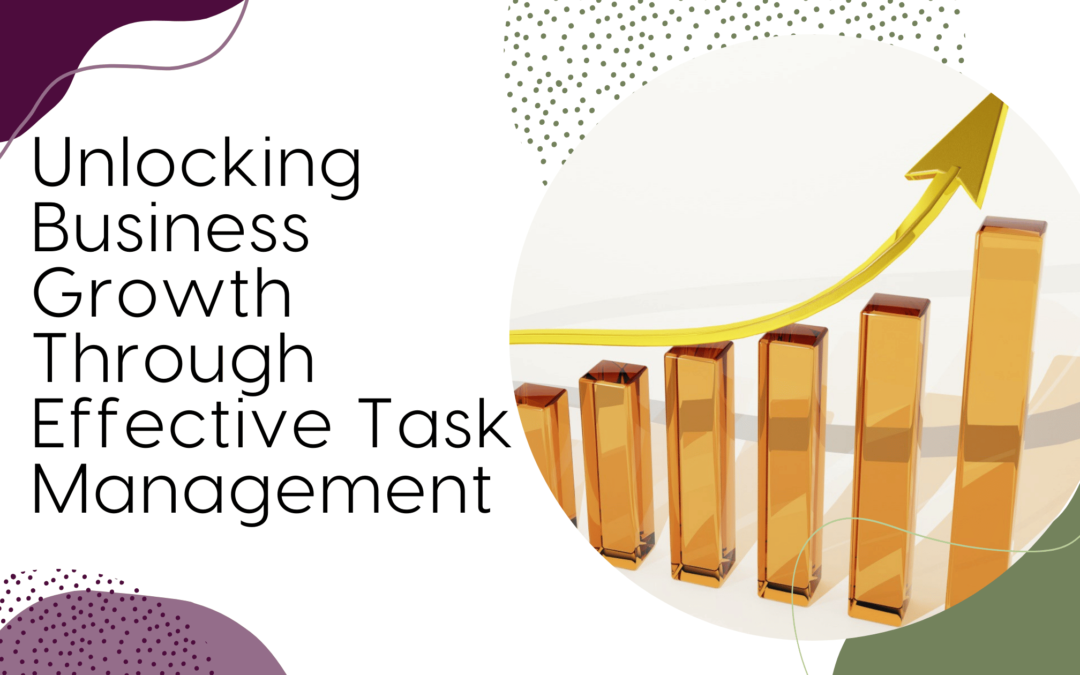
by Kimberly Laverdure | Jul 19, 2024 | Business Strategies, Expert Business Advice, Inner Wisdom, Intuition, Sales
Using the intuitive sales approach can change the way you close sales with potential clients.
Many people don’t know this about me as I don’t use my sales experience with all my clients. Usually the ones who launch programs through events- online, in-person or a hybrid of both.
But I’ve been in sales as long as I’ve been in the online space and even years before leaving the mainstream workplace.
And my number one teaching tip is that building genuine connections with clients and closing deals is both an art and a science.
While traditional sales tactics often focus on persuasion and manipulation, the intuitive sales approach takes a different approach—one rooted in authenticity, empathy, and trust.
In this article, we’ll explore how using your intuition can transform the sales process, allowing sales professionals to forge deeper connections with clients and achieve greater success.
Authenticity is the cornerstone of the intuitive sales approach.
Rather than relying on scripted pitches or aggressive tactics, intuitive sales professionals approach each interaction with sincerity and transparency.
By being genuine and true to themselves, they build trust and rapport with clients, laying the foundation for meaningful, long-lasting relationships.
Central to the intuitive sales approach is the ability to tune into the client’s needs and desires on a deeper level.
Intuitive sales professionals go beyond surface-level conversations to understand the underlying motivations and pain points driving the client’s decision-making process.
By listening attentively and empathizing with the client’s experiences, they gain valuable insights that enable them to tailor their approach and offer solutions that truly resonate.
Want to know one of my only-for-clients secret?
Just because you CAN sell anyone doesn’t mean you SHOULD.
Not all clients are a good fit and being an ethical sales person for your business is also making sure a client will only will benefit from your services but can use them in THEIR business or personal life.
Empathy is a key component of the intuitive sales approach.
Sales professionals who possess strong intuitive abilities can intuitively sense the emotions and energy of their clients, allowing them to connect on a deeper, more meaningful level.
By demonstrating empathy and understanding, they create a safe space for clients to express their concerns and aspirations, fostering trust and rapport in the process.
In the intuitive sales approach, closing deals isn’t about pressuring or manipulating clients—it’s about guiding them towards a decision that aligns with their best interests.
Intuitive sales professionals use their intuition to discern the right timing and approach for closing the deal, ensuring that the client feels empowered and confident in their decision.
By upholding integrity and honesty throughout the sales process, they build credibility and earn the client’s trust, paving the way for future collaborations.
1. Practice active listening and pay attention to both verbal and nonverbal cues to understand the client’s needs and concerns.
2. Trust your instincts and intuition when engaging with clients, allowing them to guide you towards the most effective sales approach.
3. Be genuine and authentic in your interactions with clients, building trust and rapport through sincerity and transparency.
4. Demonstrate empathy and understanding towards the client’s experiences and emotions, creating a supportive and empathetic environment.
5. Close deals with integrity and honesty, ensuring that the client feels empowered and respected throughout the process.
The intuitive sales approach offers a refreshing alternative to traditional sales tactics, focusing on authenticity, empathy, and integrity.
By using your intuition, sales professionals can build authentic connections with clients, understand their needs on a deeper level, and close deals with integrity and confidence.
So trust your instincts, listen to your clients, and watch as your sales efforts yield greater success and satisfaction than ever before.
I’d love to hear if you implemented the Intuitive Sales Approach™ and how it worked for you!
And if you’d like to connect to learn this system, reach out to me at [email protected]

by Kimberly Laverdure | Jul 12, 2024 | Business Strategies, Expert Business Advice, Uncategorized
Unlocking business growth through effective task management is extremely important for business owners and entrepreneurs.
Being an entrepreneur and business owner (or any exec support staff on your team) means the ability to delegate tasks effectively is a fundamental skill that can drive business growth and success.
Delegation involves entrusting responsibilities to others, thereby freeing up valuable time and resources for strategic initiatives and high-impact activities.
In this article, we explore the importance of delegation in business growth and provide actionable strategies for mastering this essential practice.
Effective delegation and task management begins with identifying tasks that can be delegated without compromising quality or performance.
- Start by assessing your workload and pinpointing tasks that are time-consuming, repetitive, or outside your core competencies.
- Next, carefully select team members or external partners who possess the skills, expertise, and reliability to execute these tasks successfully.
- Communicate clear expectations, deadlines, and desired outcomes to ensure alignment and accountability. Additionally, provide adequate training, support, and feedback to empower your team members and set them up for success.
By mastering delegation and task management, entrepreneurs can streamline operations, boost productivity, and focus their efforts on high-value activities that drive business growth.
So what is the ROI and benefits of unlocking business growth through effective task management?
The benefits of delegation and proper task management extend far beyond simply lightening the workload; it is a strategic imperative that fuels business growth and innovation.
Delegating tasks allows entrepreneurs to focus their time and energy on strategic planning, business development, and relationship building.
By leveraging the collective expertise and talents of their team, entrepreneurs can capitalize on new opportunities, accelerate project timelines, and achieve greater efficiency and scalability.
Moreover, delegation fosters a culture of trust, collaboration, and empowerment within the organization, leading to increased morale, job satisfaction, and retention.
Ultimately, effective delegation is not just about assigning tasks—it’s about empowering your team to thrive and driving sustainable business growth for the long term.
Effective taks management and delegation are the cornerstones of effective leadership and business success.
By relinquishing control, trusting your team, and empowering others to take ownership, entrepreneurs can unlock their full potential and propel their businesses forward.
Use delegation as a strategic tool for growth, and watch as your business flourishes and thrives in today’s competitive marketplace.

by Kimberly Laverdure | Jun 14, 2024 | Business Strategies, Expert Business Advice, Uncategorized
The hidden costs of inefficient business operations can have far-reaching and often underestimated costs.
In the competitive and always-changing business world, efficiency is not just a luxury; it’s a necessity, especially for small business owners and entrepreneurs.
While large corporations may weather inefficiencies due to their scale, small businesses often operate on tighter margins where inefficiencies can be detrimental.
This article explores the often-underestimated costs of inefficiency and underscores the importance of streamlined operations for small business success.
1. Opportunity Costs
What Are Opportunity Costs?
Opportunity costs represent the potential benefits that businesses miss out on when they choose one alternative over another.
For small business owners and entrepreneurs, this often means the valuable opportunities that are foregone due to inefficient processes.
And when you’re working hard to grow and retain clients, most entrepreneurs and small business owners can’t afford to lose money and opportunities!
Why It Matters:
For small businesses, the ability to pivot quickly and seize new opportunities is crucial. Inefficient processes, whether due to outdated technology, cumbersome procedures, or poor communication, can severely limit this agility.
For example, a small retail store may miss out on expanding its product line or an entrepreneur might delay launching a new service due to slow decision-making processes. Or a client decides not to renew their services with you and is unhappy with how their customer journey was.
These missed opportunities can have a significant impact on growth potential and competitive edge.
2. Employee Morale and Productivity
What Is the Impact on Employee Morale and Productivity?
Operational inefficiencies don’t just affect the financials; they also impact employees.
In small businesses, where every team member’s contribution is vital, inefficiencies can lead to unnecessary workload, delays, and frustration.
Don’t have any team members yet? It’s ok, you will and you need to be prepared to support and lead them properly.
Why It Matters:
In a small business setting, employees often wear multiple hats, making their productivity even more critical. Inefficiencies can lead to burnout, disengagement, and ultimately, higher turnover rates.
High turnover is particularly costly for small businesses, which may not have the resources for constant recruitment and training.
A disengaged workforce can also stifle innovation and reduce the overall quality of work, affecting customer satisfaction and business reputation.
As an entrepreneur and small business owner, you can’t afford to add anything back to your plate once you’ve mastered delegation and productivity!
3. Financial Implications
What Are the Financial Costs?
The financial implications of inefficient business operations are multifaceted, especially for small businesses.
These include both direct and indirect costs.
Why It Matters
For small business owners and entrepreneurs, every dollar counts. Inefficient operations can lead to:
Increased Operational Costs: Small businesses might face higher costs due to wasted time and resources. For example, inefficient inventory management can lead to overstocking or stockouts, both of which are costly.
Wasted Resources: Inefficiencies often result in significant waste, whether it’s raw materials, energy, or labor. This not only increases costs but also affects sustainability efforts, which are increasingly important to consumers.
Lost Revenue Opportunities: Inefficiencies can prevent small businesses from capitalizing on revenue-generating opportunities. For instance, slow order processing can lead to lost sales, while inefficient marketing strategies might fail to attract new customers. And as mentioned above in the lost opportunities, unhappy clients or customers who decide not to continue to work with you or buy your products. This results in lost revenue and limits growth potential.
Stress and Work/Life Imbalance: Worrying out the bottom line and having extra work put on you as the business owner and your tem causes undue and preventable stress. This can lead to a work and personal life unbalance where you’re putting in more time to handle fixing the inefficiencies and any client problems it can present. And this means you might be missing out on opportunities. See my blog on Navigating Work-Life Balance as an Entrepreneur .
The hidden costs of inefficient business operations are extensive and can be particularly damaging for small business owners and entrepreneurs.
From opportunity costs and employee morale to financial implications, inefficiencies can hinder growth and success. By recognizing and addressing these inefficiencies, small businesses can unlock significant potential for growth, improve employee satisfaction, and enhance financial health. In today’s competitive environment, striving for operational excellence is not just beneficial—it’s essential for long-term success and sustainability.
Small business owners and entrepreneurs must prioritize efficiency to stay competitive and thrive. Whether it’s investing in technology, streamlining processes, or fostering a culture of continuous improvement, addressing inefficiencies is a critical step toward achieving business success.

by Kimberly Laverdure | Jun 7, 2024 | Business Strategies, Expert Business Advice, Tech Systems
What is the impact of tech stacks on business scalability?
In business, scalability is key to long-term success. One of the fundamental elements that influence a company’s ability to scale is its technology stack.
But what is a tech stack, and why is it so vital for business growth?
Typically a tech stack in the software world is a bunch of coding or software platforms used together to make a system work; such as your website.
What I am talking about in the online entrepreneur realm are the tech platforms you use to support your business and its growth and management. Everything working together to automate and streamline your business.
Why is a tech stack crucial for scalability?
Efficiency and Performance
A well-chosen tech stack can handle increasing how many clients you work with, maintain retention and optimize the performance of your business as a whole, enabling it to grow without compromising the customer journey.
Flexibility and Innovation
Modern tech stacks support rapid development and launches, allowing businesses to innovate and adapt quickly to market changes.
Cost Management
Efficient tech stacks can reduce operational costs by chosing the right ones that work together seamlessly and not using too many that do the same thing. It also allows increasing revenue as you increase the amount of clients you can work with.
Some important questions to ask yourself:
Are you using too many?
How do they work together?
Are they the right ones for your business, customers and growth?
Are they costing you too much?
The right tech stack is a cornerstone of business scalability, enabling businesses to grow efficiently and sustainably. As technology continues to evolve, staying updated with the best tools and practices will be essential for maintaining a competitive edge.
If you’re not sure, schedule a session with me to help you figure that out!

by Kimberly Laverdure | May 24, 2024 | Boundaries, Business Strategies, Expert Business Advice
The importance of setting boundaries in your business is essential to maintaining a healthy work environment and crucial for the success and well-being of any business.
One of the key components of creating such an environment is setting boundaries. Boundaries serve as guidelines that define acceptable behavior, expectations, and limits in the workplace.
In this article, we’ll delve into the significance of setting boundaries in your business and explore the positive impact they can have on productivity, work-life balance, and professional relationships.
Without clearly defined boundaries, businesses often encounter challenges that can disrupt workflow and impact employee morale. Blurred lines between work and personal life can lead to burnout, stress, and decreased job satisfaction.
Additionally, difficulties in managing client expectations can result in scope creep, missed deadlines, and strained relationships. When boundaries are not established, it becomes challenging to maintain a healthy work environment where everyone feels respected, valued, and supported.
Setting boundaries in your business requires proactive communication and a commitment to upholding standards of professionalism.
Here are some practical solutions for establishing and maintaining boundaries:
1. Communication: Clearly communicate your expectations and boundaries to clients, colleagues, and employees from the outset. Be upfront about your availability, response times, and the scope of work. Encourage open dialogue and address any concerns or misunderstandings promptly.
2. Time Management: Implement effective time management strategies to prioritize tasks and allocate sufficient time for work and personal activities. Set realistic deadlines and avoid overcommitting to projects or tasks that may compromise your ability to deliver quality results.
3. Define Roles and Responsibilities: Clearly define roles and responsibilities within your team to avoid confusion and overlap. Establish clear lines of authority and delegate tasks accordingly. Encourage collaboration and teamwork while respecting individual boundaries and autonomy.
4. Practice Assertiveness: Learn to assertively assert your boundaries and say no when necessary. Be firm but respectful in setting limits and addressing behavior that violates your boundaries. Remember that setting boundaries is essential for maintaining self-respect and protecting your well-being.
Having and holding clear boundaries in your business yields numerous benefits for both individuals and organizations:
Improved Work-Life Balance: Setting boundaries allows you to prioritize your time and energy, leading to a better balance between work and personal life. This helps prevent burnout and enhances overall well-being. See my blog on Navigating Work Life Balance as an Entrepreneur.
Increased Productivity: Clear boundaries help streamline workflow and eliminate distractions, resulting in increased focus and productivity. By establishing limits on interruptions and non-essential tasks, you can maximize efficiency and achieve better results in less time.
Enhanced Professional Relationships: Setting boundaries fosters respect and mutual understanding among colleagues, clients, and employees. By clearly defining expectations and respecting each other’s boundaries, you can build trust, collaboration, and stronger professional relationships.
Setting boundaries is essential for creating a healthy, productive work environment where individuals feel valued, respected, and supported.
By addressing the challenges that arise from the lack of boundaries and implementing practical solutions for establishing and maintaining boundaries, businesses can enjoy improved work-life balance, increased productivity, and enhanced professional relationships.
Remember that boundaries are not limitations but rather tools for fostering growth, success, and well-being in your business.

by Kimberly Laverdure | May 17, 2024 | Business Strategies, Expert Business Advice, Work Life Balance
Navigating work-life balance as an entreprenuer is no easy feat. As entrepreneurs, we often find ourselves juggling multiple responsibilities, wearing numerous hats, and working long hours to keep our ventures afloat. However, amidst the hustle and bustle of entrepreneurship, it’s essential not to overlook the importance of maintaining a healthy work-life balance.
In this article, we’ll explore the challenges of achieving work-life balance as an entrepreneur, the negative impacts of imbalance, and practical strategies for finding harmony between work and personal life.
The relentless pursuit of business success can take a toll on our well-being, leading to stress, burnout, and strained relationships. Entrepreneurs often find themselves working around the clock, sacrificing sleep, leisure time, and personal relationships in the name of success.
However, this imbalance can have detrimental effects on both our physical and mental health, leaving us feeling exhausted, overwhelmed, and disconnected from the things that truly matter in life.
Achieving work-life balance requires conscious effort and intentional planning.
Here are some practical strategies for navigating work-life balance as an entrepreneur:
1. Set Boundaries:
Establish clear boundaries between work and personal life, such as designated work hours and technology-free zones at home. Communicate these boundaries to clients, employees, and family members to ensure respect and adherence.
2. Prioritize Self-Care:
Make self-care a priority by incorporating activities that promote physical, mental, and emotional well-being into your daily routine. This could include exercise, meditation, hobbies, or spending quality time with loved ones.
3. Schedule Downtime: Block out time in your schedule for relaxation and leisure activities. Whether it’s a weekend getaway, a movie night with family, or a quiet evening alone, prioritize downtime to recharge and rejuvenate. Bonus tip: schedule breaks during your work time to go bare foot outside on the earth and get a little sun on your face- it is extremely grounding and rejuvenating! Or at the very least to move your body as we sit a lot of the day.
4. Delegate and Outsource:
Learn to delegate tasks and outsource responsibilities that don’t require your direct involvement. Trusting others to handle certain aspects of your business allows you to focus on high-priority tasks and enjoy more free time.
5. Practice Time Management:
Efficient time management is key to balancing competing priorities. Use tools and techniques such as to-do lists, prioritization, and time blocking to maximize productivity and minimize time spent on non-essential tasks.
Finding harmony between work and personal life yields numerous benefits for entrepreneurs and those benefits defintely outweigh the cost!
Improved Health: Achieving work-life balance reduces stress levels, lowers the risk of burnout, and promotes overall physical and mental well-being.
Increased Productivity: Balanced entrepreneurs are more focused, motivated, and productive, leading to better business outcomes and greater success.
Enhanced Relationships: Prioritizing personal relationships strengthens bonds with family and friends, fostering a sense of connection and support outside of work.
Greater Fulfillment: Balancing work and personal life allows entrepreneurs to lead more fulfilling, meaningful lives, pursuing their passions and enjoying a sense of fulfillment beyond business success.
As entrepreneurs, achieving work-life balance is essential for long-term success and well-being.
By recognizing the negative impacts of imbalance, implementing practical strategies for balance, and embracing the benefits of harmony, entrepreneurs can enjoy greater health, productivity, and fulfillment in both their professional and personal lives.
Remember, finding balance is not a one-time achievement but an ongoing journey that requires attention, intention, and commitment.



















